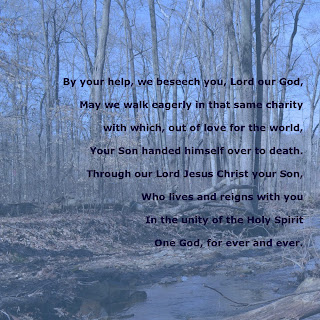
Lectionary: 252
That is why I told you that you will die in your sins. For if you do not believe that I AM, you will die in your sins.”
So they said to him, “Who are you?”
John Barton, in his book A History of the Bible (published 2019), writes,
“Second Isaiah contains the first explicit formulations of Jewish monotheism, the belief that only the God of Israel is the true God, and that all other pretended gods are nothing at all: not rivals, not even impotent rivals, to the one God, but simply non-existent:Before the Exile and Diaspora, the prophets insisted that we should worship Our God, and that Our God had an exclusive claim upon us. As to other gods? Or other religions? The prophets couldn't be bothered to talk about them.Thus says the Lord, the King of Israel, and his Redeemer, the Lord of Hosts; I am the first and I am the last; Besides me there is no god. Isaiah 44:6
This “first explicit formulation of Jewish monotheism” was written long after Abraham, Moses, and David. It appeared after Israel had been overrun by Assyria and Babylon; after Jerusalem was leveled; and Solomon's temple, razed; after the God of the Jews had apparently been vanquished by the gods of the foreigners. Why would anyone worship a defeated, impotent god?
 Isaiah 44:6 was written in defiance of the Babylonian rulers after the Jews had been scattered from India to north Africa and Spain.
Isaiah 44:6 was written in defiance of the Babylonian rulers after the Jews had been scattered from India to north Africa and Spain.We should understand that our religion did not appear fully grown like Athena, born out of the head of Zeus. Rather, it developed over many centuries first in the Levant, and then with the diaspora of the Jews. Somewhat later, Christianity began with Jesus and his disciples but the Church as we know it developed its structures of authority, liturgy, scriptures, and principal doctrines in the first four centuries of the Christian Era. It was not created out of nothing; much of it was received from our Jewish ancestors.
Although we can trace the evolution of a religion, we should appreciate how slowly and reluctantly religious customs, attitudes, and beliefs change. Some practices of the devout may disappear from the mainstream but remain in isolated communities for generations, and then reappear.
If we appreciate the essentially conservative nature of religion, we might appreciate Jesus’ shocking statement in today’s gospel, “…if you do not believe that I AM, you will die in your sins.” Mary’s son claims to be the Lord of Abraham, Isaac and Jacob; he is the only God. You shall have no strange god before him. You must believe this!














